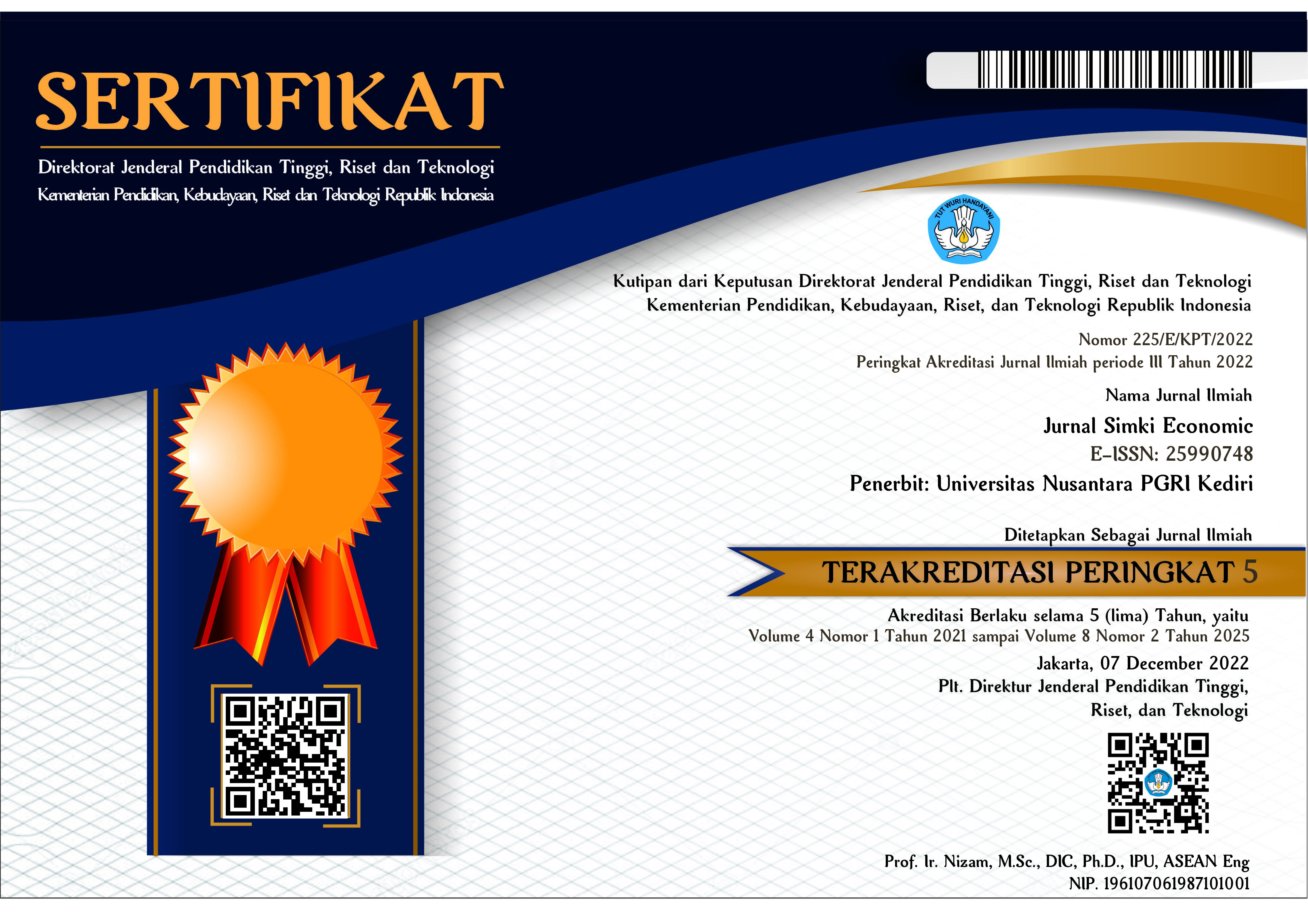The Influence of Work Motivation and Self-Efficacy on Employee Performance
 Abstract views: 819
,
Abstract views: 819
,
 PDF downloads: 694
PDF downloads: 694
Abstract
Human resource management aims to realize the performance of employees who have contributed to the achievement and development of company performance. The purpose of this study was to analyze and determine the effect of work motivation and self-efficacy partially and simultaneously on employee performance. The population in this study were employees at a bakery in Mojokerto City, amounting to 42 people. The sampling technique was carried out by means of a census. The analysis technique in this study is multiple linear regression analysis with SPSS 26. The results of the study found that work motivation and self-efficacy had a significant partial and simultaneous effect on employee performance.
Downloads
References
Arifin, S., R. Mardikaningsih & Y. R. Al Hakim. 2017. Pengaruh Kedisiplinan, Kompetensi, dan Motivasi Kerja terhadap Kinerja Karyawan, Management & Accounting Research Journal, 2(1), 43-50.
Bandura, A. 2001. Social Cognitive Theory: An Agentic Perspective. Annual Review of Psychology, 52(1), 1–26.
Bandura, A., & E.A. Locke. 2003. Negative self-efficacy and goal effects revisited. Journal of Applied Psychology, 88(1), 87–99.
Campbell, N. K., & G. Hackett. 1986. The effects of mathematics task performance on math self-efficacy and task interest. Journal of Vocational Behavior, 28, 149-162.
Bradley & J. A. Roberts. 2004. Self-employment and job satisfaction: Investigating the role of self-efficacy, depression, and seniority, Journal of Small Business Management, 42(1), 37–58.
Darmawan, D. 2015. Peranan Motivasi Kerja, Kedisiplinan, dan Lingkungan Kerja terhadap Kinerja Guru SD di Kecamatan Gempol Kabupaten Pasuruan, Jurnal Ilmiah Manajemen Pendidikan Indonesia, 1(3), 113-122.
Darmawan, et al. 2020. The Quality of Human Resources, Job Performance and Employee Loyalty, International Journal of Psychosocial Rehabilitation, 24(3), 2580-2592.
Hair, J. F. Jr., William, C.B., Banin, B. J., & Anderson, R. E. 2010. Multivariate Data Analysis. 7th ed. New Jersey: Upper Saddle River-Prentice Hall.
Herpen, V. M., V.M. Praag, & K. Cools. 2005. The Effects of Performance Measurement and Compensation on Motivation: An Empirical Study. De Economist, 153(3), 303-329.
Khan, I., M. Shahid, S. Nawab, & S.S. Wali. 2013. Influence of Intrinsic and Extrinsic Rewards on Employee Performance: The Banking Sector of Pakistan. Academic Research International, 4(1), 282-291.
Khasanah, H., S. Arum, & D. Darmawan. 2010. Pengantar Manajemen Bisnis, Spektrum Nusa Press, Jakarta
Mardikaningsih, R. 2014. Kinerja Karyawan dan Faktor-Faktor yang memengaruhinya, Jurnal Ilmu Sosial, 7(2), 73-84.
Muchai, M. M. & B. Mwangi, B. 2012. Effect of Employee Rewards and Recognition on Job Performance in Kenya’s Public Sector: A Case Study of Nakuru Water and Sanitation Ltd. International Journal of Science and Research, 3(9), 2151-2156.
Ozütku, H. 2012. The Influence of Intrinsic and Extrinsic Rewards on Employee Results: An Empirical Analysis in Turkish Manufacturing Industry. Business and Economic Research Journal, 3(3), 29-48.
Copyright (c) 2021 Misbachul Munir, Samsul Arifin

This work is licensed under a Creative Commons Attribution 4.0 International License.














